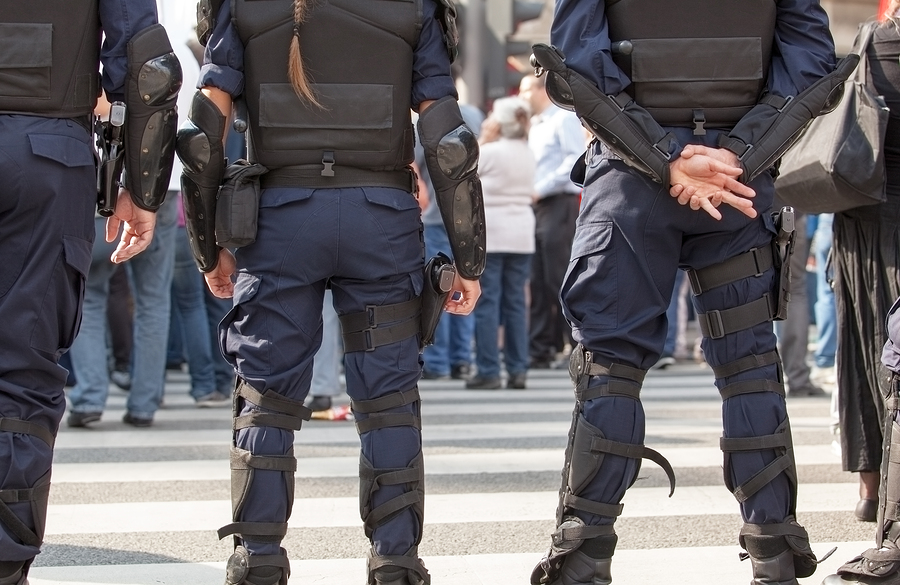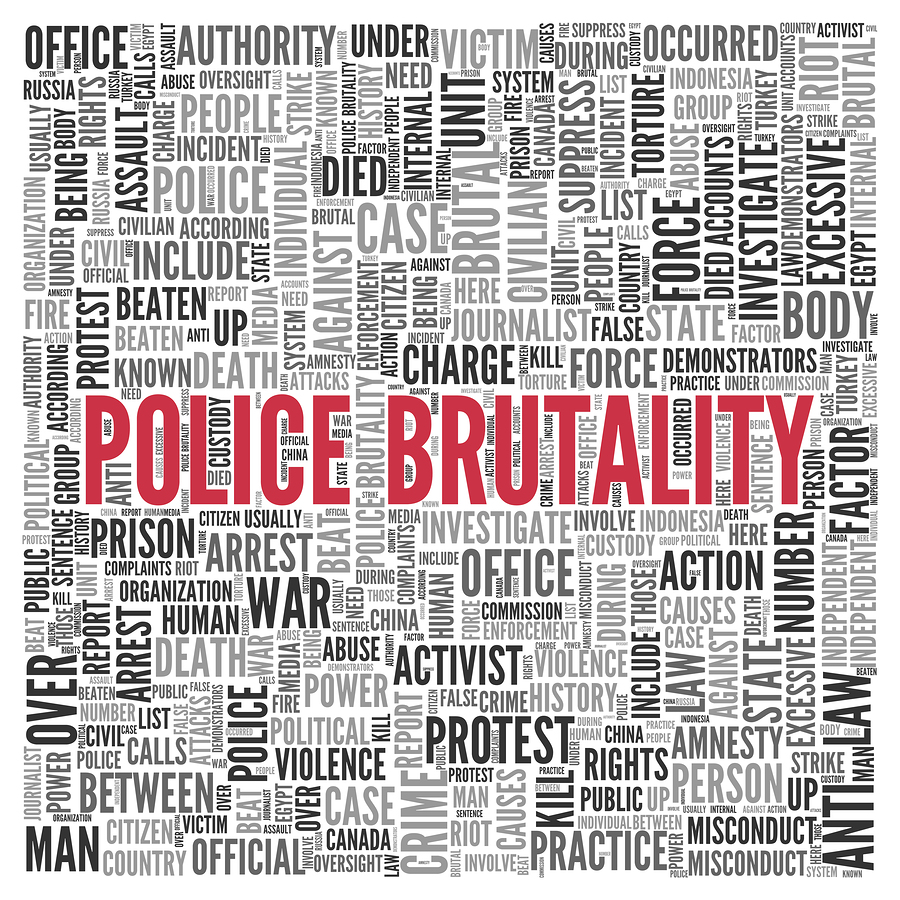May 22, 2017 | Civil Rights Law
We rely on the police for safety, but we also rely on the police to treat us fairly, regardless of race, color, national origin, sex, disability, and so on. In order to provide safety, Colorado police officers have broad powers to carry out their duties; however, there are robust Constitutional laws and other laws that place limits on this power and protect our civil rights.

When police go too far, violating the civil rights of individuals in Colorado, the victim of the misconduct may have legal options. The first step in seeking justice and holding the responsible individual(s) accountable for their misconduct is to consult with a highly experienced Denver civil rights lawyer. At the Civil Rights Litigation Group, a civil rights law firm right here in Denver, we fully understand the complexity and the difficulty of these cases, as holding law enforcement accountable for misconduct, brutality, and excessive force requires a thorough knowledge of law as well as diligence.
Basics of police misconduct and qualified immunity
When stopped by the police for a suspected crime, it’s definitely an unsettling experience. Nevertheless, if the police officer is simply performing their job and not violating your civil rights, then the police officer is virtually immune from a civil rights lawsuit. Things like negligence and failing to exercise due care are, usually, insufficient for a lawsuit.
This is known as qualified immunity, and when bringing a police misconduct lawsuit to courts, the defense representing the law enforcement officer(s) will most likely raise a defense of qualified immunity. The short version of this legal doctrine is that it protects government officials (including police officers and law enforcement) “insofar as their conduct does not violate clearly established statutory or constitutional rights of which a reasonable person would have known.” In other words, you may have a lawsuit only when willful police conduct violates an existing statute and/or your Constitutional rights.
Federal statute for police misconduct and excessive force
Protections against police misconduct are thoroughly detailed in federal law, Title 42 Section 1983. According to this statute, it is unlawful for anyone acting under the authority of state law (in this instance, Colorado law) to deprive another person of his or her civil rights under the Constitution or federal law.
Your civil rights in a police misconduct case
In addition to Section 1983 and the claim you can bring to federal courts, it’s equally important to know your Constitutional and civil rights. Understanding these rights will be essential in a police misconduct case because, right from the beginning, you’ll be arrested and processed in Colorado’s criminal justice system. Some of the rights you should know include:
- Right to remain silent
- Right to refuse to consent to a search of yourself, your car, or your home
- If you are not under arrest, you have the right to calmly leave
- If you are arrest, you have the right to a lawyer
When arrested, make sure to remain calm and polite, don’t interfere or obstruct the police, and don’t lie or give false documents. Furthermore, it’s especially important to assert your right to remain silent. DON’T immediately start yelling how you’re going to sue; in fact, if the law enforcement is afraid of a misconduct lawsuit, he/she may begin covering up the incident immediately, documenting everything that would be beneficial to their defense.
In other words, if you’re arrested or the police have violated your civil rights or another statute, it’s important to politely assert your right to remain silent and contact a civil rights lawyer immediately.
Common types of police misconduct in Colorado
There are many ways that police can violate your rights, and in recent years, many cases of police misconduct, wrongful death, and excessive force have made their way to the limelight. The most common police misconduct claims brought to courts under Section 1983 include:
-
 False arrest (false imprisonment) — The police violated your Fourth Amendment right against unreasonable search and seizure, but in order to have a “successful” case, you must show that the police didn’t have reasonable cause at the time.
False arrest (false imprisonment) — The police violated your Fourth Amendment right against unreasonable search and seizure, but in order to have a “successful” case, you must show that the police didn’t have reasonable cause at the time.
-
Malicious prosecution — The police violated your Fourteenth Amendment right to liberty. For these types of claims, you’ll need to show that 1) the police officer commenced a criminal proceeding, 2) the proceeding ended in your favor (not-guilty or dropped charges), 3) the police officer didn’t have probable cause, and 4) the criminal proceedings were brought with malice.
-
Use of excessive or unreasonable force — These cases often involve serious physical injury or death. Whether or not the police officer’s force was reasonable or unreasonable depends on the unique facts and circumstances of the instance.
- Failure to intervene — If an officer witnesses another officer violating your rights, and that first officer doesn’t do anything to help, then that officer may be complicit in the police misconduct case.
Fight for justice with the civil Rights Litigation Group in Denver
Civil rights claims are essential in our justice system, especially when upholding Colorado and Denver police officers to the law. Nevertheless, even if you felt that you were mistreated, the relevant police officers may be immune from a lawsuit. Police officers enjoy a wide range of protections. As a result, evidence supporting your claim will be absolutely fundamental, and if you were the victim of police misconduct, you need to contact a Denver civil rights attorney immediately so that valuable evidence does not disappear.
Contact the Civil Rights Litigation Group in Denver today for a free consultation. Don’t let the police get away with stark violations of your rights, and call our civil rights law firm today at (720) 515-6165.
Feb 22, 2017 | Employee Rights
When informing the authorities or others regarding your employer’s illicit or illegal activity, you have certain protections under Federal and Colorado state laws. At the Civil Rights Litigation Group, we understand that being a whistleblower is no easy task, and although you have rights that protect against retaliation, your employer may still try to retaliate against you.
 Whether your issue involves a layoff, changes in work schedules, “blacklisting,” cuts in hours, and more, you can call civil rights and whistleblower attorney Raymond K. Bryant today. We offer free consultations, and, if we decide to take your case, we’ll employ a vast network of resources, diligent investigation, and vigorous representation to make sure that your rights are protected.
Whether your issue involves a layoff, changes in work schedules, “blacklisting,” cuts in hours, and more, you can call civil rights and whistleblower attorney Raymond K. Bryant today. We offer free consultations, and, if we decide to take your case, we’ll employ a vast network of resources, diligent investigation, and vigorous representation to make sure that your rights are protected.
In the meantime, you can learn more about whether or not you qualify as a whistleblower below.
Federal whistleblower laws and you
If you feel that an employer is retaliating against you for whistleblowing, the federal agency known as the Occupational Safety and Health Administration (OSHA) may be on your side. Whistleblowing is an employee right, and OSHA’s Whistleblower Protection Program enforces the whistleblower provisions of more than twenty whistleblower statutes. These statutes protect employees who report violations of the law regarding the following:
- Workplace safety and health
- Airline
- Commercial motor carrier
- Consumer product
- Environmental
- Financial reform
- Food safety
- Health insurance reform
- Motor vehicle safety
- Nuclear
- Pipeline
- Public transportation
- Railroad
- Maritime
- Securities
Regarding OSHA, Section 11(c) of the OSH Act prohibits employers from discriminating against their employees for exercising their rights (detailed under the OSH Act). The rights detailed under this Act include, but are not limited to, worker protections when participating in an inspection or talking to an inspector, seeking access to employer exposure and injury records, reporting an injury, and raising a safety or health complaint with the employer.
It is also important to note that whistleblowers are protected under the federal False Claims Act, and whistleblowers can report securities fraud (SEC and CFTC) and illegal actions involving the IRS.
Federal employers, on the other hand, can refer to the Whistleblower Protection Act of 1989. This Act only protects federal employees who report agency misconduct, such as illegal practices, gross mismanagement, abuse of authority, or practices that endanger public health.
Whistleblowing and retaliation
Naturally, some employers who willfully and intentionally engage in misconduct won’t be too happy when an employee reports the illegal activity. As such, some employers may wish to retaliate against whistleblowers through some of the following methods:
- Blacklisting
- Demotion
- Firing
- Denying overtime or promotion
- Denial of benefits
- Making threats, intimidation, or harassment
- Reducing pay
- Reassignment to a less desirable position
Additionally, it’s important to note that, when reporting to OSHA, workers who have been retaliated or discriminated against must file a complaint within 30 days of the alleged adverse action. Some types of complaints, such as those that apply to the Energy Reorganization Act or the Federal Railroad Safety Act, allow up to 180 days to file.
OSHA enforces many of the retaliation laws, but because Colorado is a federal-OSHA, retaliation protections apply to federal employees as well as private sector employees where the employer has more than 10 employees.
Do you qualify as a whistleblower?
So, now that you know some of the basic protections regarding whistleblowers in Colorado, the question remains, “Do you qualify as a whistleblower?”
Fortunately, the answer is quite broad, as, depending on the illegal activity being reported, a whistleblower can be a public or private employee, a contractor or a subcontractor, or even a non-employee who can document fraud against Colorado or local governments. Regardless of the illegal activity or fraud you are reporting, some general guidelines show who has a better opportunity for success when whistleblowing. These guidelines include:
- The whistleblower has actual knowledge of the illegal act, not just hearsay or suspicion
- The whistleblower can provide hard evidence of the illegal activity, such as emails or internal documents, among others
- The evidence is specific and details the “who, what, when, and where”
- The whistleblower’s information must be original; it cannot come from a publicly disclosed source
Contact the Civil Rights Litigation Group today
If you are unsure about whistleblowing, feel that you need strong legal backing on your side, or are experiencing retaliation for exercising your rights, call the Civil Rights Litigation Group. By calling us for a free, no-obligation consultation, we will carefully and compassionately (and confidentially) listen to your case and determine whether you have a whistleblower case. If so, we will vigorously and relentlessly pursue your claims to the fullest extent of the law.
Call the Civil Rights Litigation Group at 720-515-6165 today!
Feb 10, 2017 | Civil Rights Law
One of the bedrocks of America is, at least in theory, the right of political and social freedom. This idea, that American citizens have unalienable rights, revolutionized the American experience, bringing millions of immigrants from all over the world to participate in opportunities that were previously unavailable. Unfortunately, even today, many Americans and Colorado residents have their basic constitutional rights infringed upon.
 If you have had your rights violated, whether you’ve been discriminated against in the workplace or you’ve been abused by law enforcement, among other civil rights, you need to contact us. At the Civil Rights Litigation Group, we are one of Denver’s leading voices for victims of civil and constitutional rights abuses, and we have the tools and legal know-how to get your case to courts, litigate vigorously, and seek compensation for damages incurred.
If you have had your rights violated, whether you’ve been discriminated against in the workplace or you’ve been abused by law enforcement, among other civil rights, you need to contact us. At the Civil Rights Litigation Group, we are one of Denver’s leading voices for victims of civil and constitutional rights abuses, and we have the tools and legal know-how to get your case to courts, litigate vigorously, and seek compensation for damages incurred.
Understanding constitutional rights in Colorado
Civil, or constitutional rights in the United States (and Colorado) are the rights of individuals to receive equal treatment from unfair practices and discrimination. There are many laws aimed at protected certain individuals. The most famous protection is the Civil Rights Act of 1964, which was a landmark civil rights and labor law that outlawed discrimination based on race, color, religion, sex, or national origin. In Colorado, the Colorado Civil Rights law also prohibits discrimination on the basis of sexual orientation and marriage to a coworker. According to both federal and state laws, discrimination is illegal when it’s based on:
Elements of a civil rights case
You may have a case when another individual has discriminated against you in a protected setting, such as in an education setting, housing setting, or employment setting. For instance, if an employer has made a hiring/firing or employment decision based on the above-mentioned protections, you may certainly have a discrimination case.
Furthermore, civil rights abuses can occur in the following ways:
What you should do if you have a case
If you were the victim of a civil rights abuse, whether that was discrimination in the workplace, Constitutional Rights abuses, or police brutality, the first step is to contact an experienced attorney in Colorado. With in-depth knowledge of Colorado and federal civil rights laws, as well as experience representing individuals just like you in courts, an attorney can help you combat the abuse, seek justice, and possibly recover compensation for damages incurred.
Before starting a discrimination case, it’s important to note that you must file employment discrimination claims within six months of the alleged act; the deadline is one year for housing claims and 60 days for public accommodations claims. In many cases, your abuse claim will begin with filing an intake packet, which is reviewed by the Colorado Civil Rights Division.
Contact the Civil Rights Litigation Group today
No matter the circumstances, if you have had your rights violated, you need to take action and contact an attorney. Remaining silent solely promotes further discriminatory acts or abuses in the future; as such, filing a lawsuit can help you seek justice while preventing further abuses in the future.
There are deadlines to filing a civil rights claim, so don’t hesitate and contact Denver civil rights attorney Raymond K. Bryant at the Civil Rights Litigation Group today. For a free consultation, call us at 720-515-6165.
Jan 6, 2017 | Civil Rights Law
The terms “good shooting” and “bad shooting” are in quotes for a reason — there are rarely “good shootings.” Even in some extreme circumstances, shooting to injure or kill should be a last-resort option when you feel threatened or that your life is in danger. From a police officer’s point of view, however, there is a difference between a justified, legal use of force and committing murder or, at the very least, manslaughter. These days, the police shootings against unarmed African Americans has spawned widespread criticism across the United States, such as the Black Lives Matter movement. Police misconduct is a serious issue.

As a Denver civil rights and police misconduct attorney, it can be clear (in most cases) whether or not the police used force responsibly and legally, or if the police officer was too trigger happy and led to someone’s death. Nevertheless, many Colorado residents are unaware of some of the subtle and more nuanced legal definitions that separate “good” and “bad” shootings. In this post, we’ll attempt to clear up some of these misunderstandings. In the meantime, if you or a loved one was shot by police, you shouldn’t hesitate; call the Civil Rights Litigation Group in Denver CO today at 720-515-6165.
Colorado police misconduct and the use of deadly force
Colorado police officers have several options when dealing with a potentially deadly, or even dangerous, suspect, and whether the police officer goes for the TASER or their gun often depends on the officer’s intuition during these split-second decisions, even more so than any standard protocol. Nevertheless, the rise of unjustified police shootings shows that “intuition” can lead to wrong decisions, resulting in police misconduct and an individual’s death.
Colorado law authorizes police officers to use force in specific situations, such as to carry out an arrest or prevent a suspect from escaping. Police can also use force to defend themselves or another person from the use or imminent use of force. The degree of force, however, depends on the unique circumstances of the situation, whereas deadly force may be justified when it is met with deadly force. For instance, deadly force may be justified when a suspect is committing a felony that involved the use or threatened use of a deadly weapon.
Deadly force, in virtually all cases, is not justifiable when the suspect is committing a misdemeanor. Colorado law makes it a crime for a police officer to use excessive force, which occurs when a police officer continues applying physical force even though the suspect is unable to resist arrest.
Deadly force and a fleeing suspect
When a suspect is running away, that suspect is less likely to pose a threat, and a Colorado police officer is only justified shooting a fleeing suspect in very specific circumstances. For instance, the 1985 Supreme Court case Tennessee v. Garner better defined the so-called Fleeing Felon Rule. According to the ruling, officers cannot shoot unarmed, non-dangerous suspects out of concern that they may escape. Police may shoot the suspect if the police believe that the suspect will cause serious injury or death to the officer, other officers, or the public, if not apprehended.
It is always important to remember that Colorado law recognizes that police are sometimes put in potentially dangerous situations; for this reason, case law states that the police officer may judge whether or not the use of force was reasonable and necessary, and not the facts and circumstances of the situation, which may come to light later with perfect hindsight. Police misconduct is not always cut and dried.
Fight police misconduct with attorney Raymond Bryant
Whether a person is dangerous, and how dangerous that person is, is rarely easy to determine. Nevertheless, there are many laws in Colorado that differentiate a “good” shooting from a “bad” shooting. If you believe that a friend or a loved one was shot due to excessive force exhibited by the police, it’s essential to act as soon as possible and call Denver civil rights attorney Raymond Bryant. At the Civil Rights Litigation Group, we have the resources, experience, and legal insight to take on police officers when police misconduct has occurred. For a free, no-obligation consultation with an experienced civil rights attorney, call our Denver law office today at 720-515-6165.

 False arrest (false imprisonment) — The police violated your Fourth Amendment right against unreasonable search and seizure, but in order to have a “successful” case, you must show that the police didn’t have reasonable cause at the time.
False arrest (false imprisonment) — The police violated your Fourth Amendment right against unreasonable search and seizure, but in order to have a “successful” case, you must show that the police didn’t have reasonable cause at the time.

 Whether your issue involves a layoff, changes in work schedules, “blacklisting,” cuts in hours, and more, you can call
Whether your issue involves a layoff, changes in work schedules, “blacklisting,” cuts in hours, and more, you can call 
